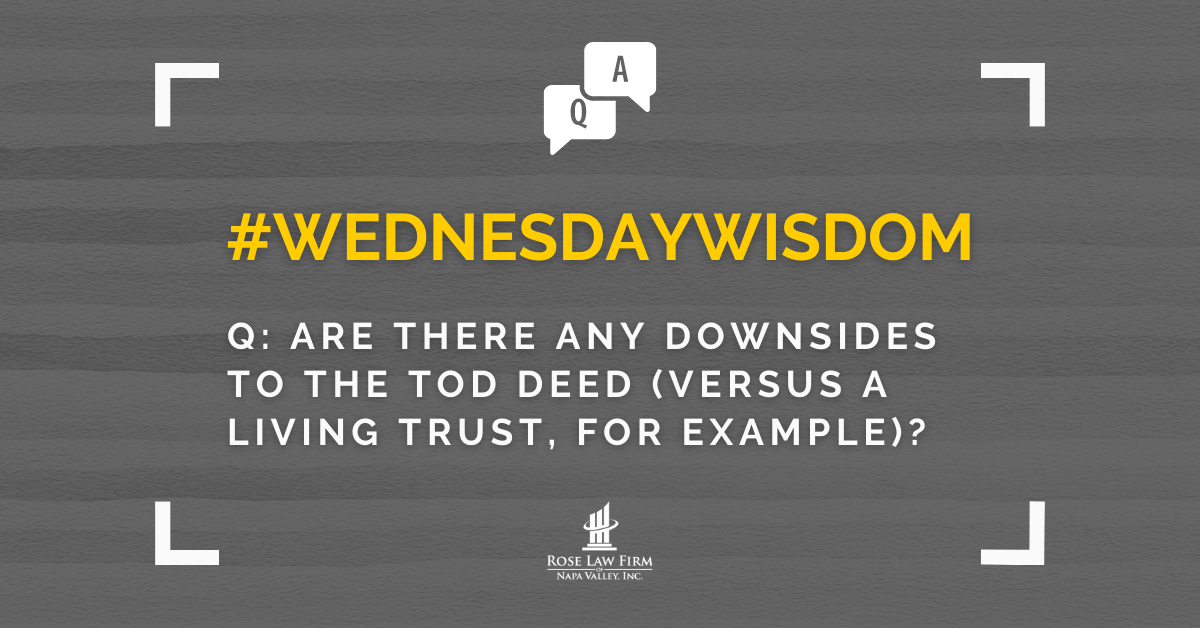A: Although there may certainly be situations in which the use of a TOD Deed are appropriate, there are many potential pitfalls to be aware of:
1: TOD Deeds can only be used to transfer certain types of property: a) one to four residential dwelling units or condominium units b) a single-family residence with less than 40 acres of agricultural land; c) or a mobile home that is a “fixture” according to Section 18551 of the Health and Safety Code.
2: TOD Deeds cannot be used to transfer residential property held as Joint Tenancy or as Community Property with Right of Survivorship.
3: TOD Deeds do not permit designation of beneficiaries by class description (e.g., “my children”); the beneficiary or beneficiaries have to be specifically named.
4: TOD Deeds cannot designate “contingent beneficiaries”: if a beneficiary dies before the Grantor, the property goes to the other surviving beneficiaries in equal shares or, if no other beneficiaries, then it reverts to the Grantor’s estate and would be subject to probate.
5: Because TOD Deeds are relatively quick and easy to create, they may be more often subject to undue influence and elder abuse.
6: Although the TOD Deed was supposed to minimize the use of attorneys, new laws passed in 2022 may actually increase the likelihood that attorneys and the probate court will be necessary to resolve errors and confusion resulting from “DIY” users of the TOD Deed.





